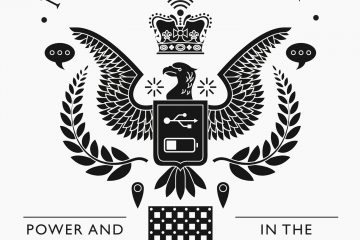
Communication in the 21st Century: A conversation with Tom Fletcher, author of Naked Diplomacy [Part II]
Dr Tristen Naylor, Oxford’s Lecturer in Diplomatic Studies, chatted with Tom Fletcher, the former British Ambassador and Downing Street foreign policy advisor, about his new book, Naked Diplomacy. In this three-part series their discussion explores everything from diplomacy in the digital era to the divide between academics and policy makers — with a nod to the intertextuality of W.H. Auden and Black Sabbath along the way. For Part I, see here. TF: In diplomacy, like any other trade, there are people who simplify and people who complicate. I tend to side with the simplifiers. TN: I can easily see that. Just taking the very start of your book as an example, you begin with W.H. Auden’s ‘The Embassy’, which so elegantly and simply …

Diplomacy, Academia, and The Threat of Irrelevance: A conversation with Tom Fletcher, author of Naked Diplomacy
Dr Tristen Naylor, Oxford’s Lecturer in Diplomatic Studies, chatted with Tom Fletcher, the former British Ambassador and Downing Street foreign policy advisor, about his new book, Naked Diplomacy. In this three-part series their discussion explores everything from diplomacy in the digital era to the divide between academics and policy makers — with a nod to the intertextuality of W.H. Auden and Black Sabbath along the way. See Part II here. TN: Tom, your new book is Naked Diplomacy and your blog is The Naked Diplomat. Borrowing from Jamie Oliver as the ‘Naked Chef’, who sought to strip cooking back to its bare essentials, you’re seeking to do the same with diplomacy. Why do you think that doing so is necessary now? TF: …
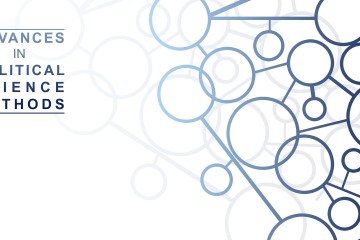
How do we control what we measure using quantitative text analysis methods?
Dr Ben Lauderdale from the Department of Methodology at the London School of Economics and Political Science delivered a special masterclass on Tuesday 24th May 2016. Ben’s research focuses on the measurement of political preferences from survey, voting, network and text with a particular focus on using text data. This event presented the latest developments in ways social scientists can use text and provides an excellent opportunity to explore the promises but also the limitations of this quickly expanding research field. For further information on text analysis in social science see Felix Krawatzek and Andy Eggers Podcast Series.
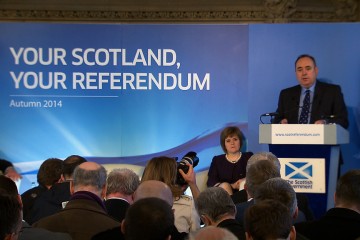
Iain McLean talks about his book ‘Scotland’s Choices: The Referendum and What Happens Afterwards’
In this video, Iain McLean explains what both options would entail, in plain language, presenting the facts without taking sides. It focuses, not on which option is likely to win, but on how they would be put into place in practice. It is a handbook for voters who want to fully understand their options. It looks at the key issues: independence within the EU, the Calman Commission recommendations, the welfare state, money issues and oil revenues. You can find out more about the book by clicking here: http://www.euppublishing.com/book/9780748696406
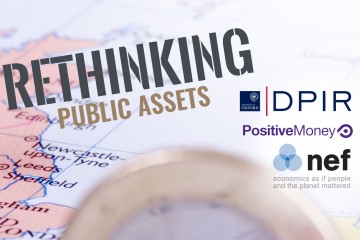
Rethinking public assets: land and capital
Rethinking public assets: land and capital
Play Episode
Pause Episode
Mute/Unmute Episode
Rewind 10 Seconds
1x
Fast Forward 30 seconds
00:00
/
1 hour, 13 minutes.
Subscribe
Share
RSS Feed
Share
Link
Embed
Download file | Play in new window | Duration: 1 hour, 13 minutes.The UK has a crucial role to play in the debate over how the EU should be reformed. This session engages in a conversation as to why and how.

Rethinking public assets: innovations in money
Rethinking public assets: innovations in money
Play Episode
Pause Episode
Mute/Unmute Episode
Rewind 10 Seconds
1x
Fast Forward 30 seconds
00:00
/
56 minutes.
Subscribe
Share
RSS Feed
Share
Link
Embed
Download file | Play in new window | Duration: 56 minutes.The UK has a crucial role to play in the debate over how the EU should be reformed. This session engages in a conversation as to why and how.

Rethinking public assets: managing wealth
Rethinking public assets: managing wealth
Play Episode
Pause Episode
Mute/Unmute Episode
Rewind 10 Seconds
1x
Fast Forward 30 seconds
00:00
/
1 hour, 8 minutes.
Subscribe
Share
RSS Feed
Share
Link
Embed
Download file | Play in new window | Duration: 1 hour, 8 minutes.The UK has a crucial role to play in the debate over how the EU should be reformed. This session engages in a conversation as to why and how.
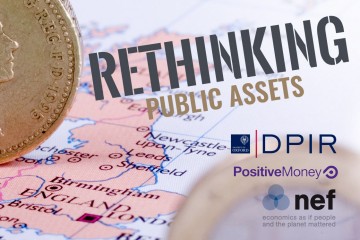
New Series: Rethinking Public Assets
Five years after the financial crisis eased, sovereign debt, budget deficits and austerity politics still dominate the headlines. Yet despite deep cutbacks in many countries, governments still remain the largest asset-owner in most economies. They just don’t know it. Many of these assets exist beyond the balance sheet in the form of public land and real estate, state-owned enterprises and sovereign wealth. There are a number of implications to this hidden value. For instance, radical change in the way we understand and manage state assets could help tackle some pressing social and economic policy challenges. Clearer accounting of the ownership of and yield from public assets could augment public revenues, empowering the government to address public and household debt, income …










